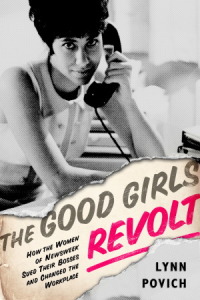Episode 10: Selling Stereotypes
/November 15, 2012
In this show we look at how women come across in the media and how that affects the way we think about ourselves and what we might do with our lives. Did you know women only have 30 to 40 percent of speaking roles on TV and in movies? And when women do have a voice, we're often not exactly sparkling on the conversation front (but you can be pretty sure we'll be wearing a low-cut top). Thanks to the Tow-Kight Foundation for sponsoring this episode. Tune in to hear cable TV pioneer Kay Koplovitz, women from the Spark movement, veteran activist Gloria Feldt, Jennifer Pozner, author of 'Reality Bites Back' and reality TV producer Troy DeVolld thrash through the issues. 18 minutes.
If you'd like to follow up on any of the studies and articles I mentioned in this episode (and one I didn't), here are a few links:
Forbes Woman: Why Millennial Women Do Not Want to Lead
Women's Media Center 2012 report on the state of women in the US media
Kaiser Family Foundation study on young people and media use
Geena Davis Institute on Gender in Media study on gender roles and occupations in the media
Girl Scouts Research Institute survey on how reality TV affects girls aged 11-17
